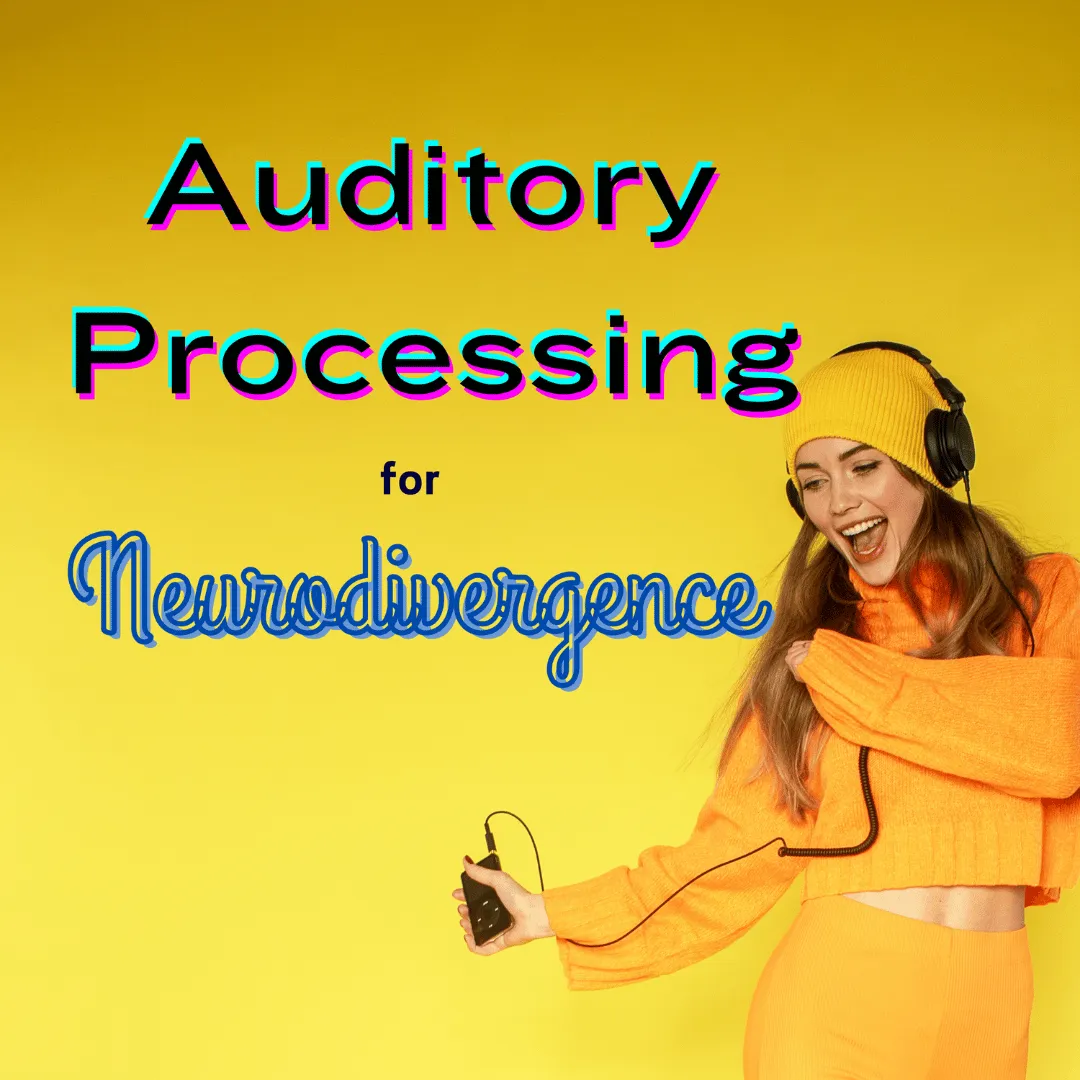
Understanding Auditory Processing Challenges in Neurodivergence
Today, we’re diving into a topic that’s crucial for many neurodivergent individuals but often misunderstood by those unfamiliar with the experience: auditory processing challenges. Whether you're neurodivergent yourself or simply looking to better understand the experiences of others, this post aims to shed light on what auditory processing is, how it affects daily life, and ways to navigate these challenges.
What is Auditory Processing?
Auditory processing refers to the brain's ability to interpret and make sense of the sounds we hear. It’s more than just the physical act of hearing; it involves processing the sounds into meaningful information. For many neurodivergent people, this process can be more complex and challenging, leading to what we call auditory processing difficulties or disorders.
Common Experiences of Auditory Processing Challenges
Imagine being in a crowded room where multiple conversations, background noises, and various sounds merge into one overwhelming cacophony. For someone with auditory processing challenges, this scenario can be a daily struggle. Here are a few common experiences:
Difficulty Filtering Background Noise: Distinguishing between background noise and important sounds can be tough, making it hard to focus on conversations or tasks.
Delayed Processing: There might be a lag between hearing a sound and understanding it, leading to delays in responding or following instructions.
Misinterpretation of Sounds: Sounds can be misinterpreted or confused, making verbal instructions or conversations challenging to follow accurately.
Sensitivity to Sound: Some individuals may be hypersensitive to certain sounds, which can be distracting or even painful.
How Do These Challenges Impact Daily Life?
Auditory processing challenges can affect various aspects of daily life, including:
Communication: Holding conversations, especially in noisy environments, can be exhausting and frustrating.
Learning: Following verbal instructions in educational or professional settings can be more challenging.
Social Interactions: Participating in group activities or social gatherings can be overwhelming, leading to feelings of isolation or anxiety.
Navigating Auditory Processing Challenges
While auditory processing challenges can be daunting, there are strategies and tools that can help. Here are a few tips:
Use Visual Aids: Supplement verbal instructions with written or visual aids to reinforce understanding.
Create Quiet Spaces: Designate quiet areas for work or relaxation to minimize background noise and distractions.
Practice Active Listening: Encourage active listening techniques, such as summarizing what was heard or asking for repetition if needed.
Seek Professional Support: Audiologists, speech therapists, and occupational therapists can provide tailored strategies and interventions.
Building Understanding and Support
For those without auditory processing challenges, understanding and empathy go a long way. Here are some ways to be supportive:
Be Patient: Allow extra time for responses and be understanding of delays or misunderstandings.
Minimize Background Noise: When possible, reduce background noise during conversations.
Provide Clear Instructions: Give clear, concise, and multi-modal instructions to aid understanding.
Conclusion
Auditory processing challenges are a significant aspect of the neurodivergent experience, impacting communication, learning, and social interactions. By building awareness and employing supportive strategies, we can create a more inclusive environment where everyone feels heard and valued.
Thank you for taking the time to learn about this important topic. If you have any questions or would like to share your experiences, please leave a comment below. Together, we can continue to foster understanding and support within our community.
